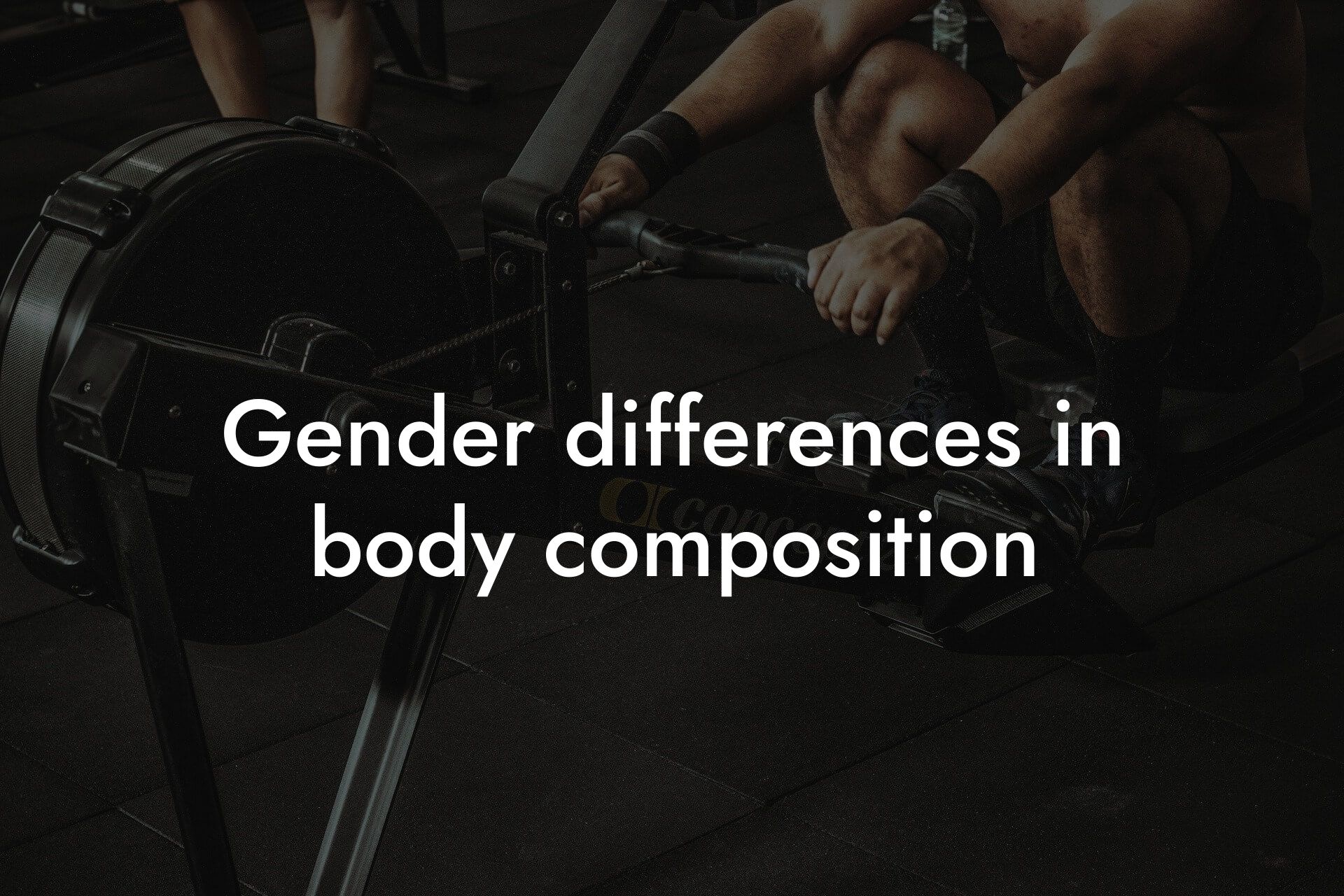As high-earning professionals, you understand the importance of maintaining a healthy and fit physique. At Tano Performance Group, we use advanced technology like DEXA machines to provide comprehensive body assessments, helping you optimize your body composition and take your business to the next level. However, there's a crucial factor that can significantly impact the accuracy of your body composition results: hydration levels. In this article, we'll delve into the importance of hydration, how it affects body composition, and provide actionable tips to ensure you're properly hydrated for your next assessment.
Table of Contents
The Importance of Hydration
Hydration is essential for overall health and wellness. Water makes up approximately 55-60% of an adult's body weight, playing a critical role in various bodily functions, such as regulating body temperature, lubricating joints, and facilitating digestion. Even mild dehydration can cause symptoms like fatigue, headaches, and decreased cognitive function, which can negatively impact your daily performance and overall quality of life.
How Dehydration Affects Body Composition Results
Dehydration can significantly impact the accuracy of your body composition results, particularly when using DEXA machines. Here are a few ways dehydration can skew your results:
1. Inaccurate Body Fat Percentage: Dehydration can cause your body to retain more water, leading to an artificially high body fat percentage reading. This is because DEXA machines use X-ray technology to measure bone density and body composition, which can be affected by excess water retention.
2. Altered Lean Mass Measurements: Dehydration can also affect lean mass measurements, as water loss can lead to a decrease in muscle mass. This can result in an inaccurate representation of your lean mass, potentially impacting your training and nutrition strategies.
3. Changes in Bone Density Readings: Dehydration can cause a decrease in bone density readings, as water loss can affect the density of your bones. This can be particularly concerning for individuals with osteoporosis or osteopenia, as inaccurate readings may lead to ineffective treatment plans.
The Ideal Hydration Level for Accurate Body Composition Results
To ensure accurate body composition results, it's essential to maintain optimal hydration levels. The American College of Sports Medicine recommends that adults drink 17-20 ounces (about 500-600ml) of water 2-3 hours before exercise or assessment. Additionally, you should aim to drink 7-10 ounces (about 200-300ml) of water every 10-15 minutes during exercise or assessment.
How to Properly Hydrate for Your DEXA Scan
To ensure you're properly hydrated for your DEXA scan, follow these tips:
1. Drink plenty of water: Aim to drink at least 8-10 glasses of water per day, with an additional 1-2 glasses in the hours leading up to your scan.
2. Avoid diuretics: Limit or avoid diuretic substances like coffee, tea, and soda, which can increase urine production and lead to dehydration.
3. Monitor your urine output: If your urine is dark yellow or you're not urinating frequently enough, it may be a sign that you're not properly hydrated.
4. Avoid intense exercise: Refrain from intense exercise or activities that cause excessive sweating in the 24 hours leading up to your scan, as this can lead to dehydration.
Common Hydration Mistakes to Avoid
Even with the best intentions, it's easy to make hydration mistakes that can impact your body composition results. Here are a few common mistakes to avoid:
1. Not drinking enough water: Failing to drink enough water can lead to dehydration, which can skew your body composition results.
2. Drinking too much water: Overhydration can also impact your results, as excess water can lead to an artificially high body fat percentage reading.
3. Not monitoring urine output: Failing to monitor your urine output can make it difficult to determine if you're properly hydrated.
The Role of Hydration in Overall Health and Wellness
Hydration plays a critical role in overall health and wellness, extending far beyond its impact on body composition results. Proper hydration can:
1. Boost energy levels: Even mild dehydration can cause fatigue, headaches, and decreased cognitive function.
2. Improve athletic performance: Proper hydration is essential for optimal athletic performance, as it helps regulate body temperature, lubricate joints, and facilitate digestion.
3. Support weight loss: Hydration can help with weight loss by increasing satiety, improving digestion, and boosting metabolism.
In conclusion, hydration plays a critical role in ensuring accurate body composition results. By understanding the importance of hydration, how dehydration affects body composition, and following proper hydration strategies, you can ensure you're getting the most out of your DEXA scan. Remember to drink plenty of water, avoid diuretics, monitor your urine output, and avoid intense exercise before your scan. By prioritizing hydration, you'll not only optimize your body composition results but also improve your overall health and wellness.
Frequently Asked Questions
What is the importance of hydration in achieving body composition results?
Hydration plays a crucial role in achieving body composition results as it affects various physiological processes, including metabolism, digestion, and muscle function. Even mild dehydration can hinder weight loss efforts, muscle growth, and overall physical performance. Proper hydration helps regulate hunger, boost metabolism, and support muscle recovery, ultimately leading to better body composition results.
How does dehydration impact body fat percentage?
Dehydration can lead to an increase in body fat percentage as the body retains water to compensate for the lack of hydration. This water retention can mask fat loss progress, making it seem like you're not losing fat even if you're following a healthy diet and exercise routine. Additionally, dehydration can slow down metabolism, making it harder to burn fat and achieve weight loss goals.
Can hydration levels affect muscle mass?
Yes, hydration levels can significantly impact muscle mass. Proper hydration is essential for muscle growth and recovery. Dehydration can lead to muscle breakdown, decreased strength, and reduced muscle mass. Even mild dehydration can cause muscle cramps, spasms, and weakness, making it challenging to perform exercises and achieve muscle growth.
How does hydration impact bone density?
Hydration plays a critical role in maintaining healthy bone density. Dehydration can lead to a decrease in bone density, making bones more prone to fractures and osteoporosis. Proper hydration helps regulate calcium levels, which is essential for maintaining strong bones. Adequate hydration also supports the production of collagen, a protein that gives structure to bones and connective tissue.
What are the common signs of dehydration?
Common signs of dehydration include dark yellow or amber-colored urine, dry mouth, fatigue, headaches, dizziness, and muscle cramps. If you're experiencing any of these symptoms, it's essential to drink plenty of water and electrolyte-rich fluids to replenish lost fluids and electrolytes.
How much water should I drink daily to stay hydrated?
The amount of water you should drink daily varies depending on factors such as age, sex, weight, activity level, and climate. A general guideline is to drink at least 8-10 glasses of water per day, but athletes or individuals with high activity levels may need to drink more. It's also important to drink electrolyte-rich fluids, such as sports drinks, to replenish lost electrolytes.
Can I rely on thirst to determine my hydration levels?
No, thirst is not a reliable indicator of hydration levels. By the time you feel thirsty, you may already be dehydrated. It's essential to drink water regularly throughout the day, even if you don't feel thirsty, to maintain optimal hydration levels.
How does hydration impact athletic performance?
Hydration has a significant impact on athletic performance. Proper hydration can improve endurance, strength, and speed, while dehydration can lead to decreased performance, fatigue, and increased risk of injury. Even mild dehydration can cause a 10-15% decrease in athletic performance.
Can hydration levels affect my mood and cognitive function?
Yes, hydration levels can significantly impact mood and cognitive function. Dehydration can lead to feelings of anxiety, irritability, and depression, while proper hydration can improve focus, concentration, and mood. Even mild dehydration can cause a decrease in cognitive performance and memory.
How does hydration impact digestion and nutrient absorption?
Hydration plays a critical role in digestion and nutrient absorption. Water helps dissolve nutrients and soluble fiber, making them more accessible to the body. Dehydration can lead to constipation, diarrhea, and impaired nutrient absorption, while proper hydration can improve digestion and support overall health.
Can hydration levels affect my skin health?
Yes, hydration levels can significantly impact skin health. Proper hydration helps maintain skin elasticity, texture, and hydration, while dehydration can lead to dry, tight, and flaky skin. Adequate hydration also supports the production of collagen, which is essential for healthy skin.
How does hydration impact my immune system?
Hydration plays a critical role in immune function. Proper hydration helps support the immune system, while dehydration can weaken immune function, making you more susceptible to illnesses and infections.
Can hydration levels affect my blood pressure?
Yes, hydration levels can impact blood pressure. Dehydration can cause blood pressure to rise, while proper hydration can help regulate blood pressure and reduce the risk of hypertension.
How does hydration impact my energy levels?
Hydration has a significant impact on energy levels. Proper hydration helps regulate blood sugar levels, supports energy production, and can improve energy levels. Dehydration, on the other hand, can lead to fatigue, lethargy, and decreased energy levels.
Can hydration levels affect my sleep quality?
Yes, hydration levels can impact sleep quality. Dehydration can disrupt sleep patterns, leading to insomnia, fatigue, and decreased sleep quality. Proper hydration, on the other hand, can improve sleep quality and duration.
How does hydration impact my overall health?
Hydration plays a critical role in overall health. Proper hydration supports various physiological processes, including digestion, circulation, and temperature regulation. Dehydration, on the other hand, can lead to a range of health problems, including kidney stones, urinary tract infections, and heat stroke.
What are some common mistakes people make when it comes to hydration?
Common mistakes people make when it comes to hydration include not drinking enough water, relying on thirst to determine hydration levels, and not consuming electrolyte-rich fluids during or after exercise.
How can I track my hydration levels?
You can track your hydration levels by monitoring your urine output, color, and frequency. You can also use hydration tracking apps, wearables, or smart water bottles to track your hydration levels.
What are some tips for staying hydrated during exercise?
Tips for staying hydrated during exercise include drinking water or electrolyte-rich fluids 15-30 minutes before exercise, drinking 17-20 ounces of fluid for every hour of exercise, and consuming electrolyte-rich fluids during or after exercise.
How can I stay hydrated in hot weather?
Tips for staying hydrated in hot weather include drinking plenty of water, avoiding caffeine and alcohol, staying in the shade, and taking regular breaks to cool off.
Can hydration levels affect my body temperature?
Yes, hydration levels can impact body temperature. Dehydration can cause body temperature to rise, while proper hydration can help regulate body temperature and prevent heat-related illnesses.
How does hydration impact my hair and nail health?
Hydration plays a critical role in hair and nail health. Proper hydration helps maintain healthy hair and nails, while dehydration can lead to dry, brittle hair and weak, brittle nails.
Here are some related articles you might love...
- The role of brown fat in body composition
- How body composition changes with endurance training
- Gender differences in body composition
- Understanding bone marrow density in DEXA scans
- How DEXA scans detect visceral fat
- Advanced body composition metrics: Lean mass index
- The impact of muscle asymmetry on body performance
- How body composition affects metabolic rate
- Differences between subcutaneous and visceral fat
Zak Faulkner
Zak Faulkner is a leading authority in the realm of physical health and body composition analysis, with over 15 years of experience helping professionals optimise their fitness and well-being. As one the experts behind Tano Performance Group, Zak has dedicated his career to providing in-depth, science-backed insights that empower clients to elevate their physical performance and overall health.
With extensive knowledge of DEXA technology, Zak specializes in delivering comprehensive body assessments that offer precise data on body fat, muscle mass, bone density, and overall physique. His expertise enables individuals to make informed decisions and achieve their fitness goals with accuracy and confidence. Zak’s approach is rooted in a deep understanding of human physiology, combined with a passion for helping clients unlock their full potential through personalised strategies.
Over the years, Zak has earned a reputation for his commitment to excellence, precision, and client-focused service. His guidance is trusted by top professionals who demand the best when it comes to their health. Whether advising on fitness programs, nutritional strategies, or long-term wellness plans, Zak Faulkner’s insights are a valuable resource for anyone serious about taking their health and fitness to the next level.
At Tano Performance Group, Zak continues to lead our Content Team revolutionising how professionals approach their physical health, offering unparalleled expertise that drives real results.




